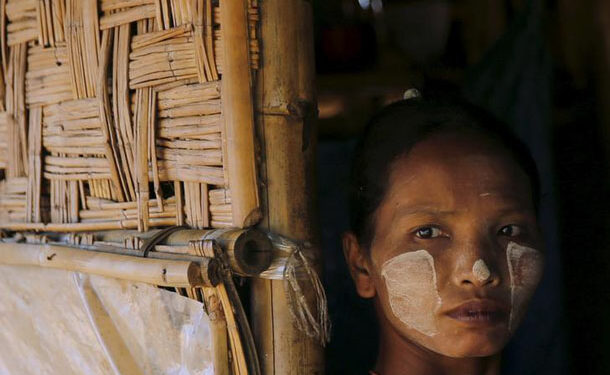BANGKOK — Women and girls uprooted by fighting in Burma risk sexual violence and lack access to reproductive healthcare, said the UN Population Fund, which is launching a health project for women and girls in conflict-hit areas.
Communal violence in Arakan State in the west and fighting between government troops and ethnic rebels in Kachin and Shan states in the north have caused massive displacement in Burma, where as many as 645,000 people are displaced, the highest number in Southeast Asia.
“While on the run or while living in shelters, [women] often lack access to basic sexual and reproductive health support,” the UNFPA said in a statement. “Without assistance by midwives or provision of contraceptives, women and girls are at increased risk of unsafe sex, unwanted pregnancy and unsafe delivery.”
The UNFPA’s $11.8 million, three-year programme will provide healthcare for expectant and new mothers and emergency care for women who have suffered violence, such as post-rape treatment and counseling, in Arakan, Kachin and northern Shan states.
In Arakan, ethnic Rohingya Muslims face persecution and live in apartheid-like conditions, confined to camps and townships with restrictions on movement and deprivation of food and medical care.
“Imagine women there who want to deliver a baby, and they don’t have means of transport, or they do not have proper documents to move within their areas: These are factors that contribute to maternal death,” said Stenly Sajow, humanitarian affairs specialist for UNFPA.
“They do not go to school, they are illiterate, they have their own language, and unfortunately there is very little information available to make them understand the importance of health especially during pregnancy,” he said from Yangon.
The health programme, supported by Finland and Sweden, will set up mobile clinics, equip health facilities to perform safe deliveries and give clean delivery kits to women in their last trimester of pregnancy.
“One item [in the kit] is a sterile blade that will be used to cut the umbilical cord. In most of the places, they use bamboo or whatever will cut,” Stenly said.
Burma’s maternal mortality rate is 200 per 100,000 live births, compared to the Southeast Asia average of 140, and only four in Finland and Sweden, UNFPA said in a statement, adding that higher rates have been documented in conflict areas.

















